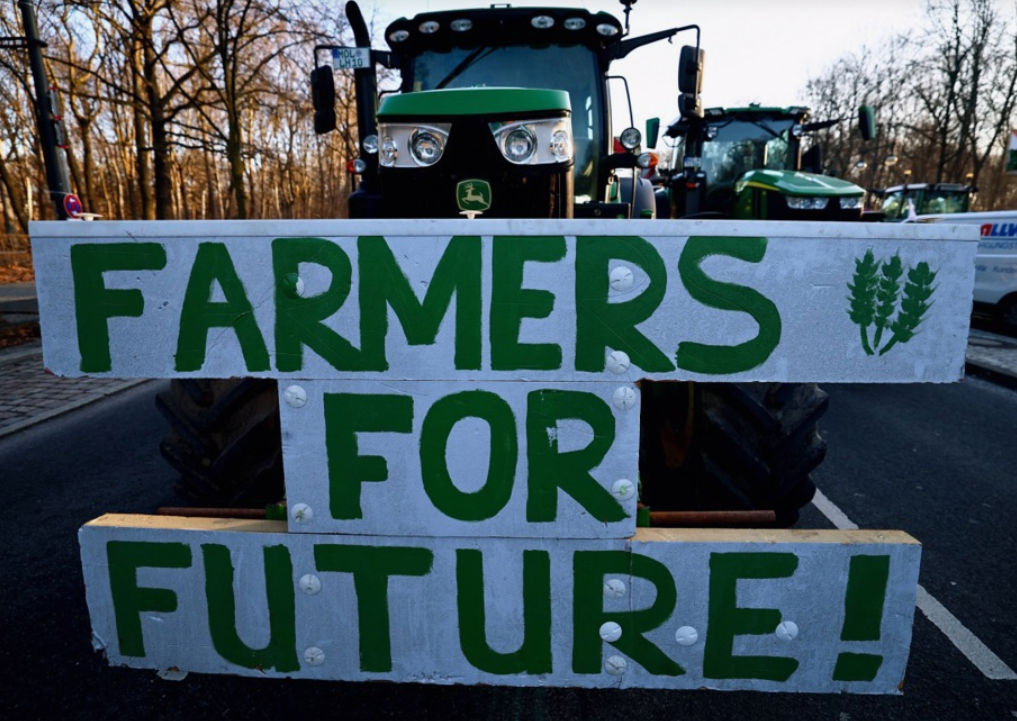Last year the Netherlands, Poland and Slovakia, this year Germany, Belgium and France. European farmers have lost patience with the inaction and ignorance of their governments. With more and more bureaucratic rules and pointless regulations, it is almost impossible for European farmers produce economically.
Since last year, convoys of tractors rolling towards capital cities have become a feature of Europe from Poland to France. It started in the Netherlands, where the government, which was voted down in the autumn, wanted to close a third of farms in blind compliance with the EU’s Green Deal. Moreover, it planned to cut methane emissions by slaughtering nearly 300 thousand cattle.
To meet the Eurocrats’ climate targets, Ireland would also need to reduce its cattle population from the current 6.5 million to around one million by 2030. And then there is the EU’s farm-to-fork strategy requiring to set aside 10 per cent of agricultural land as non-productive areas and reduce the use of chemical pesticides by 50 per cent.
Brussels is also putting pressure on European farmers with another hobby: unlimited support for Ukraine. EU sanctions have driven not only the price of gasoline and electricity but also fertiliser prices sky-high. Many chemical companies have cut their fertiliser production because of the explosion in gas prices and CO2 taxes. In addition, Russia, the second largest exporter of nitrogen fertiliser to the EU, has been hit by sanctions from Brussels,
the Freedom Party of Austria (FPO) points out. Brussels is imposing pointless administrative work and over-regulations on farmers. Consequently, they can barely keep up with competitors from outside the EU, who work with lower production and product prices and have to comply with less strict environmental standards. This also applies to Ukraine.
As part of the aid to Ukraine, the country is allowed to export agricultural products to third countries by land. However, inexplicably, these goods have flooded the European markets, despite the fact that they do not in any way comply with the EU’s strict production rules and contain pesticide residues that either far exceed EU limits or come from chemicals that have been banned in the EU.
With an average gross income of 31 407 euros a year, many farmers find it difficult to make ends meet, FPO says. The Green Deal calculates with an average farm income of 45,757 euros, but that has to be divided between employees – which means an average of 2-3 people per farm – and reduced with the deducted social security contributions.
What remains is too little to live on, but too much to die on. So the federal government should not be surprised if the tractors in Austria soon start rolling into Vienna. Remember, it is the farmers who put food on our plates,
the Freedom Party of Austria (FPO) opined.
In recent days, a few hundred people have staged demonstrations in Vienna, marching on foot for the time being. „Keep your bureaucratic crap and let us do our job,” farmers say, sending a message to the Austrian government and Brussels.
V4NA


